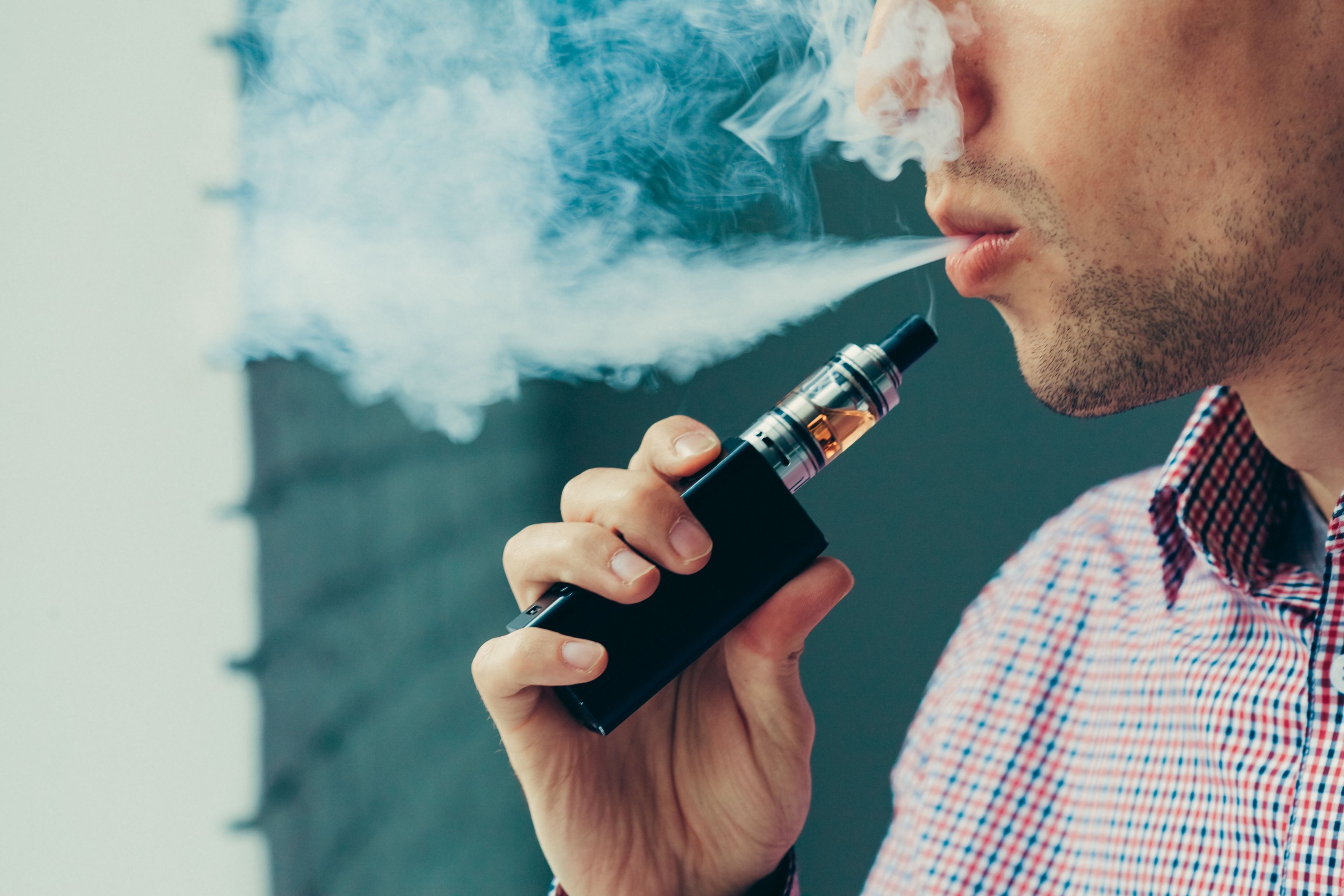Vaping rose to popularity in 2007 and is considered too new, in practice and in research, for a direct link between vaping and cancer to have been established and verified via studies.
There are many chemicals within e-cigarettes and vape pens that are known to cause harm to the lungs, including formaldehyde, which is a cancer-causing chemical associated with the development of lung, oral and bladder cancer. More research is needed, as it is still unclear whether formaldehyde reaches your lungs during vaping.
What is Vaping?
Vaping is similar to smoking a cigarette. The liquid in a vape cartridge is heated within a handheld device, transforming it into a breathable vapor. The user then inhales the nicotine and flavoring vapor. Users can vape with an e-cigarette, vape pens or mods.
There are health effects related to vape use that are not cancer related. Among these are:
- Addiction: Potential for nicotine dependence due to a large amount of nicotine in the vape liquid
- Lung Conditions and Disease: The vapor may worsen pre-existing lung conditions and increase the risk of disease, breathing irregularity and lung damage
What Does Vaping Do to Your Lungs?
Vaping is linked to the development of several lung conditions and may cause lung pain in those who vape consistently. If you experience any of the following symptoms, it may be time to consult your doctor for a checkup.
- Chest pain
- Lung pain
- Shortness of breath
- Chronic cough
Popcorn Lungs
Many e-liquids have diacetyl in them for enhanced flavor. This chemical is known to cause inflammation in the lungs that may result in scarring. Popcorn lungs or bronchiolitis obliterans (BO) is the expression of damage to small airways in the lungs and can make breathing difficult. This condition is caused by diacetyl, so it is best to be wary of the additive ingredient.
Lipoid Pneumonia
Lipoid pneumonia is a form of lung disease caused by the inhalation of oily substances or lipid-containing products. Once inhaled, lipids can cause inflammation in the lungs leading to shortness of breath and coughing up blood.
Collapsed Lungs (Pneumothorax)
Collapsed lungs can be caused by a puncture or hole in the lungs where air can escape. The holes can blister and create small tears if they burst. Normally, blisters are not problematic if they remain small, but vaping increases the chances of the blisters bursting, which can lead to a collapsed lung.
Can Vaping Cause Lung Cancer?
There is not enough research currently available to suggest that vaping directly causes cancer, but there are documented harmful effects of vaping on the lungs.
Studies of the long-term effects of vaping on the lungs are still limited, but there is research available on the harmful chemicals contained in e-liquids and the possible consequences associated with their use.
A Tobacco Control study published in 2013 noted the ill effects of toxic chemicals found in nicotine-based e-cigarettes. They sampled 12 brands for toxic materials. While toxicity level testing was not performed (to prove or disprove cancer risk) the number of harmful chemicals found warrants caution for all vape users.
E-cigarettes have been found to contain carcinogens in trace amounts, including:
- Formaldehyde
- Acetaldehyde
- Various volatile organic compounds
- Nitrosamines
- Free radicals
- Toxic gasses (carbon monoxide, hydrogen sulfide, etc.)
- Heavy metals
Carcinogens all have the potential to cause cancer or contribute to its development. If you have concerns about your exposure to possible cancer-causing chemicals in vape pens or e-cigarettes, be sure to consult your doctor for resources and screening if necessary.
Potential Risks of Secondhand Smoke from Vaping
Some vape users mistakenly assume the emissions from e-cigarettes only contain water vapor. This is far from the truth. Secondhand vapor from e-cigarettes may contain:
- Aerosols
- Ultrafine particles
- Traces of heavy metals
- Nicotine
- Benzene
- Diacetyl
All of these are toxic, even in secondhand form. Exposure to these particles has the potential to cause a myriad of issues in the lungs, such as popcorn lungs, chronic cough and irregular breathing. Although secondhand vapor does not have the same concentration of potentially dangerous chemicals, it’s still best avoided.
Lung Cancer Treatment at Community Cancer Center in Roseburg, OR
Lung cancer treatment and care options will depend on a variety of factors. Our doctors are committed to developing customized treatment plans for each patient’s unique situation. At Community Cancer Center in Roseburg, we provide solutions for those at risk of developing lung cancer. Contact us today to schedule an appointment or call 541-673-2267 (ext. 5100) to speak with a representative.
